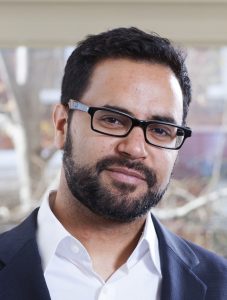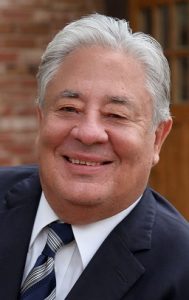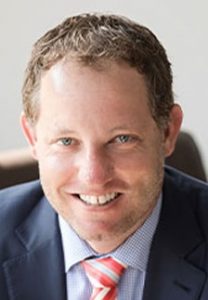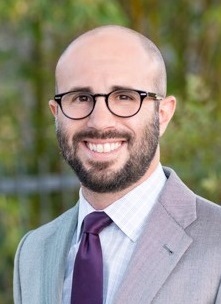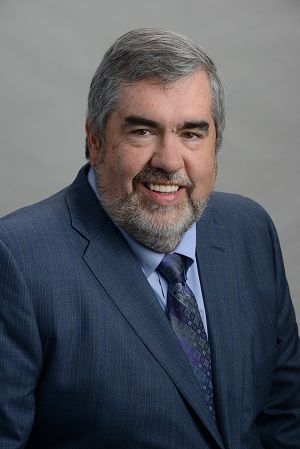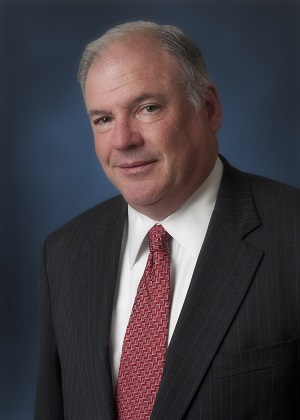The Appellate Advocacy Award, awarded annually, recognizes excellence in appellate advocacy in America. It is given to attorneys who have been instrumental in securing a final appellate court decision with significant impact on the right to trial by jury, public health and safety, consumer rights, civil rights, environmental justice, access to justice in civil cases, or other issues relevant to the work of NCJI.
Award Criteria Nomination Form Nomination deadline: March 24, 2025
2024 Award Winners: Nandan Joshi; Robert Peck


Nandan Joshi Robert Peck
The Officers and Trustees of the National Civil Justice Institute have given the Institute’s 2024 Appellate Advocacy to the lawyers for the successful plaintiffs in two groundbreaking decisions: one in the United States Supreme Court and one in the Ohio Supreme Court. The decisions represent outstanding results with far-reaching implications for plaintiffs facing government agencies who violate the terms of federal statutes that apply to them and parties who must overcome legislative caps on noneconomic damages.
Victory in the United States Supreme Court in an important consumer credit case through the efforts of Nandan Joshi of the Public Citizen Litigation Group in Washington, DC. Consumer Reginald Kirtz had borrowed money from a public loan program run by the United States Department of Agriculture (USDA). Kirtz alleged that he paid the loans off in full, but the USDA incorrectly reported to the credit rating agency TransUnion that his account was “past due,” which lowered Kirtz’s credit rating score.
The error at issue here is the tip of an iceberg. A 2021 survey by the Consumer Financial Protection Bureau (CFPB) found that over 34% of the responders had identified at least one error in their credit re-ports in the past. Federal agencies are among the largest furnishers of credit information to consumer reporting agencies, thus inaccurate reporting is a serious concern.
When the USDA failed or refused to correct the errors as required by the Fair Credit Reporting Act (FCRA), Kirtz brought an FCRA action against the agency. The USDA was dismissed on sovereign immunity grounds. Kirtz appealed, and the Third Circuit reversed and remanded. The USDA appealed to the Supreme Court, and certiorari was granted. In Department of Agriculture Rural Development Rural Housing Service v. Kirtz, 601 U.S. 42, 144 S.Ct. 457 (2024), the Supreme Court, in a unanimous opinion written by Justice Gorsuch, held, inter alia, that the FCRA creates a clear waiver of sovereign immunity, and establishes the right of a consumer to sue a federal agency for violating the terms of the statute. Nandan Joshi expanded access to justice for consumers by establishing that federal agencies may be sued for non-compliance with FCRA.
Victory in a major constitutional challenge to a state cap on noneconomic damages through the efforts of Robert S. Peck, Founder and President of the Center for Constitutional Litigation in Washington, D.C. When Amanda Brandt was 11 to 12 years old, she attended numerous “sleepovers” at the home of her best friend. While she was visiting, the friend’s father secretly administered drugs to her and committed numerous sexual assaults on her. He was arrested and charged with numerous crimes against Amanda and other victims: inter alia, 17 counts of rape, 5 counts of kidnapping, 55 counts of pandering sexually oriented matter involving a minor, and 21 counts of gross sexual imposition. Amanda suffered severe psychological injuries.
Amanda brought a civil suit against her friend’s father, asserting claims for intentional criminal wrongdoing, knowing dissemination of child pornography, intentional infliction of emotional distress, and a declaratory judgment that, as applied to the facts of the case, the state statute limiting the amount of recovery allowed was unconstitutional. In a jury trial, Amanda was awarded $14 million and $20 million in compensatory non-economic damages for different time periods, and $100 million in punitive damages. However, the trial court subsequently granted the defendant’s post-trial request to cap the amount of noneconomic damages at $250,000, pursuant to the state’s “damage cap” statute. The statute specified various exceptional situations in which it would not apply, but it did not address severe psychological injuries of the kind suffered by Amanda. An intermediate appellate court affirmed.
On the plaintiff’s further appeal, the Ohio Supreme Court, in Brandt v. Pompa, 171 Ohio St.3d 693, 220 N.E.3d 703 (Ohio 2022), held that the state statute setting compensatory-damage caps for noneconomic loss in personal injury cases did not serve the stated legislative purpose of promoting the State’s economic well-being. Thus, as applied to Amanda and those similarly situated, the statute ran afoul of the Ohio constitution’s “due course of law” provision.
Mr. Peck gratefully acknowledges the attorneys at the Fitch Law Firm in Columbus, Ohio for their work on this case at the trial level and during the first appeal.
2023 Award Winners Karla Gilbride & Leah Nicholls; Timothy Billion

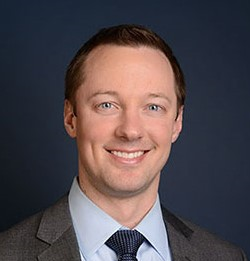
Karla Gilbride & Leah Nicholls for Morgan v. Sundance, Inc. Timothy Billion for Rosebud Sioux Tribe v. United States
The Officers and Trustees of the National Civil Justice Institute have given the Institute’s 2023 Appellate Advocacy Award to the lawyers for the successful plaintiffs in a 2022 U.S. Supreme Court decision and a 2021 Eighth Circuit decision. The decisions represent outstanding results with far-reaching implications for workers who are pressured to arbitrate workplace complaints, and for Native Americans’ enforcement of rights under long-established treaties with the federal government.
Victory in a major forced arbitration case in the United States Supreme Court: In recent years the U.S. Supreme Court has promoted the mechanism of arbitration over litigation and expanding the reach of the Federal Arbitration Act, with disastrous results for consumers, workers, and others who need to pursue legal remedies in court. Many, if not most, modern commercial transactions and employment contracts include mandatory arbitration clauses that make it extremely difficult for individual consumers or workers to obtain meaningful redress, because the larger corporate party can usually dictate its own terms.
When Robyn Morgan was hired as an hourly employee at a Taco Bell restaurant owned by Sundance, Inc., she was required to sign an agreement to arbitrate any employment dispute. Nevertheless, when she believed that Sundance was violating applicable law with respect to overtime pay, she filed a nationwide collective action against the company under the Fair Labor Standards Act (FLSA). After eight months of litigation, during which Sundance sought dismissal and participated in unsuccessful mediation, the company moved to compel arbitration under the Federal Arbitration Act (FAA). Its motion was denied by the District Court, but, on Sundance’s appeal, the United States Court of Appeals for the Eighth Circuit reversed and remanded. Represented by Karla Gilbride and Leah Nicholls, Ms. Morgan took her case to the U.S. Supreme Court. Morgan argued that, by litigating for too long, Sundance had waived its right to compel arbitration. Sundance argued that its delay in seeking arbitration had not prejudiced the plaintiff, and that it was entitled to arbitrate.
In Morgan v. Sundance, Inc., 142 S. Ct. 1708 (2022), the Supreme Court unanimously vacated and remanded. In an opinion by Justice Kagan, the Court held that prejudice is not a condition for finding that a party, by litigating too long, waived its right to stay litigation or compel arbitration. The Supreme Court’s decision overruled the 8th Circuit and eight other circuits that had embraced arbitration-specific waiver rules requiring a showing of prejudice to the non-waiving party. This holding makes it easier for claimants to show that a defendant has waived a right to compel arbitration by participating substantially in litigation without regard to whether such participation has prejudiced the claimant.
Victory in a an important tribal rights case: Timothy Billion of Robins Kaplan LLP in Minneapolis, MN led a pro bono effort on behalf of the Rosebud Sioux Indian Tribe to remedy historically inadequate healthcare for Tribe’s members and secure quality care in the future. He used the innovative vehicle of a complaint for a declaratory judgment that the 1868 Treaty of Fort Laramie, the Snyder Act, the Indian Health Care Improvement Act (IHCIA), and federal common law, required the government to provide competent physician-led healthcare to the tribe and its members, and to ensure that the health care services provided did not fall below highest possible standards of professional care. Represented by Mr. Billion, the Tribe obtained a partial summary judgment in the U. S. District Court for the District of South Dakota, and the government appealed.
In Rosebud Sioux Tribe v. United States, 9 F.4th 1018 (8th Cir. 2021), the U.S. Court of Appeals for the Eighth Circuit affirmed the summary judgment in favor of the Tribe, holding that the United States had a duty to provide competent health care to the tribe and its members, and that the duty to provide such “competent physician-led health care” was sufficiently concrete and specific. Timothy Billion and his team engaged in brilliant advocacy in pursuit of a noble goal and secured an outstanding result.
These lawyers’ dedication to the civil justice system, and their persuasive advocacy in the Morgan and Rosebud cases, have had a significant impact on access to justice in future civil cases in the United States.
2022 Award Winners Gupta, Conner, and Farrar; High Distinction to Kralowec
Deepak Gupta, Dennis Conner, and Kyle Farrar for Ford Motor Co. v. Montana Eighth Judicial District Court
Kimberly Kralowec for Frlekin v Apple Inc.
The Officers and Trustees of the National Civil Justice Institute have given the Institute’s 2022 Appellate Advocacy Award to the lawyers for the successful plaintiffs in a 2021 U.S. Supreme Court decision, and High Distinction recognition to the plaintiffs’ attorney in a 2020 California Supreme Court decision. The decisions represent outstanding results with far-reaching implications for injury victims and hourly-wage employees.
For three decades, the U.S. Supreme Court has issued a series of decisions on personal jurisdiction that have made it increasingly harder for plaintiffs to hold wrongdoers accountable in court. Ford Motor Co. v. Montana Eighth Judicial District Court, 141 S.Ct. 1017 (U.S. 2021), represents a stunning break in the Court’s long-running trend.
The decision arose from two products liability actions involving Ford automobiles. The driver of one car died in an incident in Montana, and a passenger in the other car was severely injured in a collision in Minnesota. The injuries occurred in the forum states, the victims were residents of the forum states, and Ford did substantial business in both states, yet in both cases Ford moved to dismiss for lack of personal jurisdiction, arguing that the company had done nothing in the forum states to cause the plaintiffs’ claims. Dennis Conner represented the plaintiffs who prevailed in the Montana lower courts and Supreme Court; Kyle Farrar successfully represented plaintiffs in the Minnesota trial court, Court of Appeals, and Supreme Court. Ford appealed both state court decisions to the U.S. Supreme Court, where the cases were consolidated.
Deepak Gupta briefed and argued the consolidated case in the Supreme Court, focusing on common sense and the lack of any unfairness to Ford. Because of the COVID-19 pandemic, oral argument was held by telephone, without counsel being able to see the Justices. Gupta also organized a powerful amicus curiae campaign, recruiting the Main Street Alliance (a national network of small business coalitions), the National Association of Home Builders, and the attorneys general of 40 states and the District of Columbia (including some not usually allied with consumer interests). The result was a unanimous (8-0) decision authored by Justice Elena Kagan that concluded that, “[w]hen a company like Ford serves a market for a product in a State and that product causes injury in the State to one of its residents, the State’s courts may entertain the resulting suit.” 141 S.Ct. at 1022.

The Institute’s recognizes with High Distinction victory in a precedent-setting employee-rights class action by Kimberly A. Kralowec. Apple, Inc., one of the most powerful technology companies in the world, long declined to pay its retail store employees for the time they spent waiting for, and undergoing, mandatory security checks of their personal possessions when they left work. The company contended that the employees were not performing work during that time, and could have avoided the security checks by leaving their personal possessions at home.
Ms. Kralowec represented Apple employees in a wage-and-hour class action in federal court, challenging the company’s policy. The district court granted summary judgment to Apple. On appeal, the Ninth Circuit certified questions to the state supreme court. In Frlekin v Apple Inc., 457 P.3d 526 (Cal. 2020), Ms. Kralowec secured a precedent-setting ruling on the scope of California’s definition of compensable “hours worked.” The California Supreme Court held that (1) the time employees spent on the employer’s premises waiting for, and undergoing, mandatory exit searches was employer-controlled activity, and therefore it was compensable as “hours worked” within the meaning of the “control” clause of the state wage order; and (2) the decision could not be limited to prospective application. On remand, the federal district court reversed its earlier decision for Apple and entered summary judgment on liability for the employees.
These lawyers’ dedication to the civil justice system, and their persuasive advocacy in the Ford and Frlekin cases, have had a significant impact on access to justice in future civil cases in the United States.
2021 Award Winners Adam R. Pulver; Richard Riley
Adam R. Pulver for McAdory v. M.N.S. & Assocs., Ltd. Liab. Co.
Richard Riley for Williams v. Aguirre
The Officers and Trustees of the National Civil Justice Institute have given the Institute’s 2021 Appellate Advocacy Award jointly to the lawyers for the successful plaintiffs in 2020 consumer and civil rights cases. The decisions represent outstanding results with far-reaching implications for consumers and those who are falsely accused of crimes.
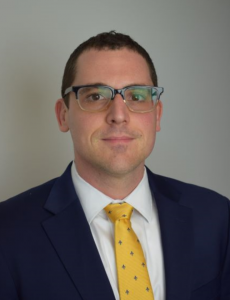 Victory on a crucial consumer protection issue by Adam R. Pulver of Public Citizen Litigation Group. The federal Fair Debt Collection Practices Act (FDCPA), 15 U.S.C. § 1692, protects consumers from abusive practices by debt collectors. In McAdory v. M.N.S. & Assocs., Ltd. Liab. Co., 952 F.3d 1089 (9th Cir. 2020), Jillian McAdory’s consumer debt was purchased by the defendant, DNF, which repeatedly contacted her through agents to secure repayment. She alleged that DNF and its agents committed numerous violations of FDCPA with respect to her debt, including harassing telephone calls and unauthorized withdrawal of money from her bank account when no payment was due. DNF moved to dismiss, arguing that it was merely a “passive” debt buyer employing third parties as debt collectors, and had no direct interactions with debtors. Thus, it said, the company did not have debt collecting as its principal purpose, and the Act did not apply to it. The district court granted the motion to dismiss.
Victory on a crucial consumer protection issue by Adam R. Pulver of Public Citizen Litigation Group. The federal Fair Debt Collection Practices Act (FDCPA), 15 U.S.C. § 1692, protects consumers from abusive practices by debt collectors. In McAdory v. M.N.S. & Assocs., Ltd. Liab. Co., 952 F.3d 1089 (9th Cir. 2020), Jillian McAdory’s consumer debt was purchased by the defendant, DNF, which repeatedly contacted her through agents to secure repayment. She alleged that DNF and its agents committed numerous violations of FDCPA with respect to her debt, including harassing telephone calls and unauthorized withdrawal of money from her bank account when no payment was due. DNF moved to dismiss, arguing that it was merely a “passive” debt buyer employing third parties as debt collectors, and had no direct interactions with debtors. Thus, it said, the company did not have debt collecting as its principal purpose, and the Act did not apply to it. The district court granted the motion to dismiss.
The Ninth Circuit considered the question “whether a business that buys and profits from consumer debts, but outsources direct collection activities, qualifies as a ‘debt collector’” under the FDCPA. The court concluded that McAdory sufficiently alleged that DNF was a debt collector, regardless of whether it outsourced its direct-contact activities to a third party. District courts throughout the U.S. had reached conflicting conclusions on that point, and the Ninth Circuit’s answer is crucial to the U.S. consumer protection regime. The case was remanded to the district court for further proceedings.
Adam Pulver, of Public Citizen Litigation Group in Washington, DC, was lead appellate counsel, and argued the case before the Ninth Circuit. The plaintiff’s lead trial counsel was Kelly D. Jones, Portland, OR.
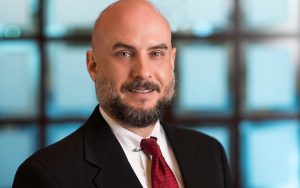
Victory in a complex civil rights/police violence case by Richard Riley of Marsh, Rickard & Bryan P.C., Birmingham, Alabama. Aubrey Williams and a friend were stopped by two police officers who were investigating a nearby bank robbery. Both were carrying concealed handguns for safety. Williams dropped to all fours and repeatedly told the officers he had a gun beneath him. Regardless, one officer shot Williams twice after he pushed him over and saw the gun The police charged him with attempted murder, claiming that he had pointed his gun at them. (Their squad car “dashcam” video showed that he did not.) Williams spent two months in the hospital recovering from his wounds, and served 16 months in pretrial jail detention before the prosecutor dismissed the charges against him for want of evidence.
Williams brought an action against the two police officers under § 1983 and state law, alleging that he was maliciously prosecuted on the charges of attempted murder. The officers moved for summary judgment, claiming qualified immunity and state-agent immunity. The district court denied the officers’ motion. On their appeal, the Eleventh Circuit, in Williams v. Aguirre, 965 F.3d 1147 (11th Cir. 2020), held that fact issues precluded summary judgment on both the § 1983 malicious prosecution claim and the officers’ claim of state-agent immunity. Chief Judge William Pryor noted in his opinion that the dashcam video was consistent with the plaintiff’s account of the events, and “support[ed] an inference that someone is lying.” Importantly, the court held that the “any crime” rule (which would provide immunity from false-arrest claims if there were probable cause to arrest the suspect for some crime, even if it was not the crime the officer thought had occurred) does not apply to § 1983 malicious prosecution claims. That holding resolved a conflict in circuit precedent and clarified the issue for any future litigants. The lawsuit was later settled.
Aubrey Williams was represented on appeal by Richard Riley. The plaintiff’s trial counsel were David Marsh and Rip Andrews of the Marsh firm, and Alan Lasseter of the Lasseter Law Firm.
These lawyers’ dedication to the civil justice system, and their persuasive advocacy in the McAdory and Williams cases, have had a significant impact on access to justice in future civil cases in the United States.
2020 Award Winners Matthew Wessler; team of Bland, Gilbride, Nicholls, Noble, Bennett
Matthew Wessler for Intel Corp. Inv. Policy Comm. v. Sulyma
Paul Bland, Karla Gilbride, Leah M. Nicholls, Ellen Noble, and Jennifer Bennett for Home Depot USA v. Jackson
The Officers and Trustees of the National Civil Justice Institute have given the Institute’s 2020 Appellate Advocacy Award jointly to the lawyers for the successful plaintiffs in two recent U. S. Supreme Court cases. The decisions repre-sent outstanding results with far-reaching implications for consumers and retirees.
 Victory for ERISA litigants secured by Matthew Wessler. In Intel Corp. Inv. Policy Comm. v. Sulyma 140 S. Ct. 768 (2020), a unanimous Supreme Court ruled that retirees complaining of a breach of fiduciary duty, leading to imprudent investments, were allowed additional time to file their actions (within six years of learning of the breach, instead of three years). This decision made it easier for workers and their families to seek redress from employers for taking excessive risks with their retirement savings, rejecting the view that the timing of such suits is triggered by mere receipt of dense financial disclosures. The Employee Retirement Income Security Act of 1974 (ERISA) requires plaintiffs with “actual knowledge” of an alleged fiduciary breach to file suit within three years of gaining that knowledge, but it allows plaintiffs to file within six years if they do not have such actual knowledge. In this case, the plaintiff (a physicist who had worked for Intel) testified that he was aware of disclosures about investments, but had not read them, and was unaware of the imprudent investments. The Court held that a plaintiff does not necessarily have “actual knowledge,” under ERISA, of the information contained in disclosures that he receives but does not read or cannot recall reading. The Court’s decision is essential to allowing workers whose employers have mismanaged their retire-ment investments to get into court. If companies could shorten the time limit workers have to bring lawsuits simply by “disclosing” investment decisions in lengthy fine-print documents, many workers whose retirement savings have been mismanaged would be prevented from bringing their cases to court. The Sulyma decision thus keeps the court-house doors open for workers and makes it easier to hold retirement fund managers accountable. Matthew Wessler, of Gupta Wessler, in Cambridge, Massachusetts, argued the case orally, and authored the brief with Jonathan E. Taylor.
Victory for ERISA litigants secured by Matthew Wessler. In Intel Corp. Inv. Policy Comm. v. Sulyma 140 S. Ct. 768 (2020), a unanimous Supreme Court ruled that retirees complaining of a breach of fiduciary duty, leading to imprudent investments, were allowed additional time to file their actions (within six years of learning of the breach, instead of three years). This decision made it easier for workers and their families to seek redress from employers for taking excessive risks with their retirement savings, rejecting the view that the timing of such suits is triggered by mere receipt of dense financial disclosures. The Employee Retirement Income Security Act of 1974 (ERISA) requires plaintiffs with “actual knowledge” of an alleged fiduciary breach to file suit within three years of gaining that knowledge, but it allows plaintiffs to file within six years if they do not have such actual knowledge. In this case, the plaintiff (a physicist who had worked for Intel) testified that he was aware of disclosures about investments, but had not read them, and was unaware of the imprudent investments. The Court held that a plaintiff does not necessarily have “actual knowledge,” under ERISA, of the information contained in disclosures that he receives but does not read or cannot recall reading. The Court’s decision is essential to allowing workers whose employers have mismanaged their retire-ment investments to get into court. If companies could shorten the time limit workers have to bring lawsuits simply by “disclosing” investment decisions in lengthy fine-print documents, many workers whose retirement savings have been mismanaged would be prevented from bringing their cases to court. The Sulyma decision thus keeps the court-house doors open for workers and makes it easier to hold retirement fund managers accountable. Matthew Wessler, of Gupta Wessler, in Cambridge, Massachusetts, argued the case orally, and authored the brief with Jonathan E. Taylor.

Victory on crucial removal issue by the team of Bland, Gilbride, Nicholls, Noble, and Bennett. In Home Depot USA v. Jackson139 S.Ct. 1743 (2019), an unusual coalition of justices were persuaded that a third-party counterclaim defendant may not remove a case to federal court, either under the general federal removal provisions or under the Class Action Fairness Act’s removal provision, 28 U.S.C. § 1453. In an opinion written by Justice Clarence Thomas, joined by Justices Breyer, Kagan, Sotomayor, and Ginsburg, the court noted that, in the context of the removal provisions, the term “defendant” refers only to the party sued by the original plaintiff, and not to a party brought into the litigation later. The decision is significant in that it allows more consumers to sue in state courts, and avoid removal to federal court—a common tactic employed by defendants in such cases, often compelling consumers to satisfy numerous procedural requirements they might not face in state court. On its face, the opinion focuses only on class actions, but had the Court ruled differently, many state-based cases of all types, even personal injury cases involving in-state defendants, might have become removable to federal court. The plaintiff’s brief in the U.S. Supreme Court was authored by Public Justice attorneys Paul Bland, Karla Gilbride, Leah M. Nicholls, Ellen Noble, and Jennifer Bennett (now of Gupta Wessler). The case was argued orally by Paul Bland.
These lawyers’ dedication to the civil justice system, and their persuasive advocacy in the Jackson and Sulyma cases, have had a significant impact on access to justice in future civil cases in the United States.
2019 Award Winners Jennifer Bennett; team of Clancy, Harty, Goldstein, Myers, and Ruckdeschel
Jennifer Bennett for New Prime Inc. v. Oliveira
Denyse Clancy, William Harty, Thomas Goldstein, Richard Myers, and Jonathan Ruckdeschel for Air & Liquid Systems Corp. et al. v. DeVries et al.
The Officers and Trustees of the National Civil Justice Institute have given the Institute’s 2019 Appellate Advocacy Award jointly to the lawyers for the plaintiffs for their work on two crucial U.S. Supreme Court cases decided in 2019. The decisions represent outstanding results with far-reaching implications for two groups who have historically been treated unfairly: transportation workers who are frequently manipulated and cheated by employers; and maritime workers exposed to unsafe working conditions. The awards were presented on July 28, 2019, at the Institute’s Fellows reception, 6:00-7:30 pm in San Diego, CA.

Transportation workers’ victory by Jennifer Bennett. In New Prime, Inc. v. Oliveira, 139 S. Ct. 532 (2019), a truck driver, on behalf of himself and fellow workers, sued his employer for wage theft. The employer attempted to enforce an arbitration “agreement” the workers has signed as part of their employment contract, arguing that the Federal Arbitration Act compelled arbitration, one claim at a time. The plaintiffs demonstrated that the Federal Arbitration Act does not apply to the “contracts of employment” of transportation workers engaged in interstate commerce, even if they are classified as independent contractors. The Court’s unanimous decision clears the way for perhaps hundreds of thousands of transportation workers to take their cases to court if their employers break the law. The appeal was argued before the Supreme Court by Jennifer Bennett (Public Justice, Oakland, CA), who litigated the case with Andrew Schmidt (Andrew Schmidt Law, Portland ME) and Hillary Schwab (Fair Work Law, Boston, MA).
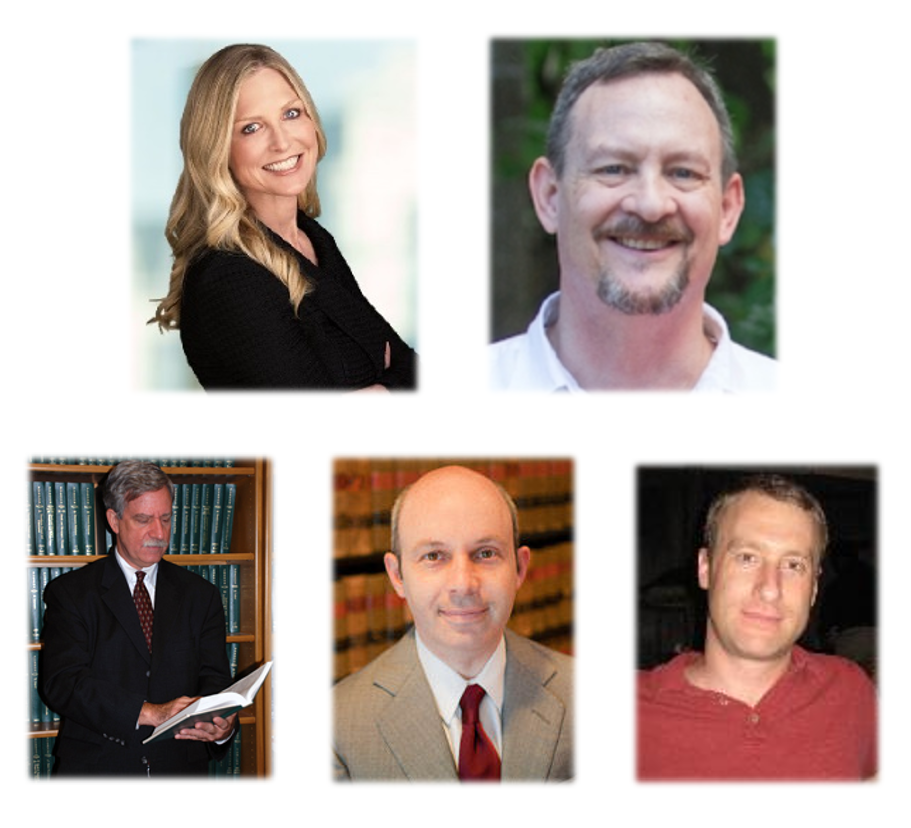
Maritime asbestos win by the team of Clancy, Harty, Goldstein, Myers, and Ruckdeschel. In Air & Liquid Systems Corp. et al. v. DeVries et al., 139 S.Ct. 986 (2019), the widows of two navy shipmen sued the manufacturer of engine parts installed in a ship built for the U.S. Navy. Their husbands worked on Navy ships during the time when asbestos insulation was routinely used on ships. They later developed cancer that the plaintiffs alleged was caused by exposure to asbestos that was applied to the ship parts after delivery. The manufacturers argued that they could not be held liable, as they supplied only “bare metal” parts that would not cause cancer. However, in Devries, the Supreme Court held that, under maritime law, product manufacturers have a duty to warn when they have reason to know that a product is likely to be dangerous when integrated and used as intended. The plaintiffs were represented by William Harty (Patten, Wornom, Hatten & Diamonstein, Newport News, VA), Richard Myers (Paul, Reich & Myers, Philadelphia, PA), Jonathan Ruckdeschel (Ruckdeschel Law Firm, Ellicott City, MD), Thomas Goldstein (Goldstein & Russell, Bethesda MD) and Denyse Clancy (Kazan, McClain, Satterley & Greenwood, Oakland, CA). Myers brought the case from the trial level through the Third Circuit and oversaw the appeal. Clancy, Harty and Ruckdeschel wrote the SCOTUS brief. Goldstein argued the case before the Supreme Court.
These lawyers’ dedication to the civil justice system, and their persuasive advocacy in the Oliveira and DeVries cases, have had a significant impact on the right of access to justice in future civil cases in the United States.
2018 Award Winners Brueckner and Siminou
Leslie Brueckner and Benjamin Siminou for T.H. v. Novartis Pharmaceuticals Corp.
The Officers and Trustees of the National Civil Justice Institute have bestowed the Institute’s 2018 Appellate Advocacy Award on Leslie Brueckner of Public Justice in Oakland, CA and Benjamin Siminou of Siminou Appeals in San Diego, CA. They were honored for their distinguished work resulting in the California Supreme Court’s landmark decision in T.H. v. Novartis Pharmaceuticals Corp., 407 P.3d 18 (Cal. 2017).
In T.H., a unanimous California Supreme Court held that, because brand-name prescription drug companies write the labels for all drugs, they may be sued for failing to warn of the dangers of mislabeled, generic versions of their drugs. A majority of the Court also held that even former brand-name manufacturers are subject to suit if their failure to update their labels to warn of their drug’s dangers foreseeably injure consumers of generic drugs. T.H. is the only standing decision of any appellate court granting consumers the right to seek compensation when they are injured by mislabeled generic drugs. More than 90 percent of all drugs sold in the U.S. are generic, and, under current federal law, generic drug manufacturers have complete immunity from suit because they do not write their products’ labels. Because there are no issues of federal law in T.H., it cannot be appealed to the U.S. Supreme Court.
Ben brought the case from the trial level through to the California Court of Appeals. Once at the California Supreme Court, Leslie and Ben jointly wrote the appellate briefs for the plaintiff, and both argued orally. Their efforts were supported by an amicus curiae brief of Consumer Attorneys of California and the American Association for Justice, authored by Charles Dell’Ario, of Napa, California, and Jeffrey R. White of AAJ.
Leslie is a Senior Attorney at Public Justice, a national public interest law firm, where she has worked for 25 years. She specializes in cutting-edge appellate litigation in the state and federal courts, such as class actions, constitutional law, federal preemption, consumer rights, personal jurisdiction, food safety, and combating court secrecy. She has handled numerous appeals in the federal and state courts, including the Supreme Courts of California, South Carolina, South Dakota, and West Virginia, and in the U.S. Supreme Court. Ben Siminou is the founder and principal of Siminou Appeals in San Diego, specializing in appeals of civil cases. Prior to establishing Siminou Appeals, Ben worked nearly a decade as a trial lawyer with the San Diego-based plaintiffs’ firm, Thorsnes Bartolotta McGuire LLP, where he handled virtually every aspect of civil litigation. Ben has handled numerous civil and criminal appeals in the California Supreme Court, the California Court of Appeal, and the Ninth Circuit.
Leslie and Ben’s dedication to the civil justice system, and their persuasive advocacy in T.H. v. Novartis, have had a significant impact on the right of access to justice in civil cases in the United States.
2017 Award Winner F. Paul Bland, Jr.
F. Paul Bland, Jr. for Chen v. Allstate Insurance Co.
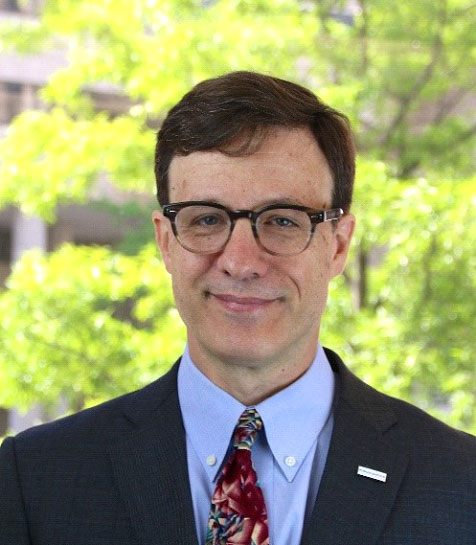
The Officers and Trustees of the National Civil Justice Institute have given the Institute’s 2017 Appellate Advocacy Award to Paul Bland of Public Justice for his work on Chen v. Allstate Insurance Co., 819 F.3d 1136 (9th Cir. 2016). The award will be presented on July 23, 2017, at the Institute’s Fellows reception, 5:30-7:00 pm at the Sheraton Boston Hotel.
Bland conducted the oral argument in Chen, and authored the brief with co-counsel Karla Gilbride of Public Justice and Claire Prestel now with James & Hoffman, Washington, D.C. The attorneys persuaded the Ninth Circuit to reject the defendant’s attempt to avoid legal liability to a class of thousands by settling with the named class representative―a strategy known in consumer law circles as “picking off” a plaintiff. On April 12, 2016, the court held that the “pick off” tactic should not be allowed. The court reasoned that, if the strategy were permitted, the defendant could pick off named class plaintiffs indefinitely, and the claims of the remaining thousands of class members who were harmed by the defendant’s conduct would never be heard, thus defeating the purpose of a class action.
The case grappled with issues left open by the U.S. Supreme Court’s January 2016 decision in Campbell-Ewald Co. v. Gomez, 136 S.Ct. 663, 2016 WL 228345. In Gomez, the Supreme Court held that, if a defendant made an offer of judgment and the plaintiff didn’t accept it, the class action was not rendered moot. But the Supreme Court left open an “unanswered hypothetical”―it declined to say whether the pick-off maneuver would have been permissible if the defendant had actually placed the settlement funds in an escrow account and the district court had entered judgment in favor of the plaintiff.
2016 Award Winners team of Robert F. Daley, R. Scott Marshall and Brent M. Rosenthal
Robert F. Daley, R. Scott Marshall and Brent M. Rosenthal for Tooey v. AK Steel Corp.
The Officers and Trustees of the National Civil Justice Institute have bestowed the Institute’s 2016 Appellate Advocacy Award on a team of attorneys: Robert F. Daley of Robert Peirce & Associates, P.C. in Pittsburgh, PA; R. Scott Marshall of Nemeroff Law Firm, P.C. in Dallas, TX; Brent M. Rosenthal of Rosenthal Weiner LLP in Dallas, TX. They were honored for their distinguished work resulting in the Pennsylvania Supreme Court’s landmark decision in Tooey v. AK Steel Corp., 81 A.2d 851 (Pa. 2013). The award will be presented on July 23, 2016, at the Institute’s Fellows reception, 6:30-8:00 pm in Los Angeles, CA.
In Tooey, two former industrial workers were diagnosed with mesothelioma—a cancer caused by asbestos exposure, with a latency period of 30 to 50 years, that is nearly always terminal. Their diagnoses came well beyond the 300-week period (about 5½ years) allowed for claim filing by the Pennsylvania workers’ compensation statute. Since they were ineligible for statutory compensation benefits, their surviving spouses filed common-law wrongful death claims against their former employers. The defendants made the familiar argument that workers’ compensation is the “exclusive remedy” for workers, and that the plaintiffs thus were without a remedy for their husbands’ deaths, and moved to dismiss the common-law claims.
Daley, Marshall and Rosenthal took the plaintiffs’ cases and argued that the workers’ compensation act, by its own terms, provides that it does not apply to occupational diseases that manifest themselves more than 300 weeks after the last hazardous exposure. They contended that, under those circumstances, the exclusive remedy provision does not apply, and the plaintiffs were free to pursue their common law tort claims. To hold otherwise would deny them any chance of redress and deny them the benefit of the “quid pro quo” upon which workers’ compensation schemes have historically been justified.
The Pennsylvania Supreme Court held that, if a worker cannot claim benefits under the statute because of the long latency period of his occupational disease, the worker may pursue a common-law tort action against the employer, notwithstanding the statute’s “exclusive remedy” provision. The court recognized that it was “inconceivable that the legislature, in enacting a statute specifically designed to benefit employees, intended to leave a certain class of employees who have suffered the most serious of work-related injuries without any redress under the [workers’ compensation act] or at common law.” (Tooey at 863.)
2015 Award Winner Samuel Issacharoff
Professor Samuel Issacharoff of NYU Law for In re Deepwater Horizon

The Officers and Trustees of the National Civil Justice Institute have bestowed the Institute’s inaugural Appellate Advocacy Award on Professor Samuel Issacharoff, of the New York University School of Law, for his distinguished work on the Deepwater Horizon class litigation. The award was presented on July 12, 2015, at the Institute’s Fellows reception in Montreal, Quebec, Canada.
Professor Issacharoff is the Bonnie and Richard Reiss Professor of Constitutional Law at NYU. He was singled out for his brilliant and tireless appellate advocacy on behalf of hundreds of thousands of individuals and businesses who suffered calamitous losses in the Deepwater Horizon disaster. The April 20, 2010, explosion and fire at the BP oil company’s oil drilling platform in the Gulf of Mexico killed eleven platform workers and injured dozens of others. The resulting three-month-long discharge of over three million barrels of oil caused catastrophic physical and economic damage along the entire Gulf Coast of the United States.
After a class action was filed in federal court against BP and other responsible entities, class counsel negotiated a global settlement agreement, estimated by BP to be worth $14 billion. However, BP raised numerous challenges to the administration of the agreement by the U.S. District Court for the Eastern District of Louisiana. Retained by counsel for the claimant class early in the litigation to design the theory of the lawsuit, Professor Issacharoff spearheaded the class’s trial and appellate strategy, worked with the claimants’ counsel on their appellate briefs in the 5th Circuit and the U.S. Supreme Court, and served as lead counsel during oral arguments. The result was an unbroken series of appellate victories for the claimants, culminating in the Supreme Court’s denial of certiorari (BP Exploration & Production, Inc. v. Lake Eugenie Land & Development, Inc., 135 S.Ct. 754 (Dec. 8, 2014)).
In addition to his appellate practice, Professor Issacharoff has produced a monumental body of legal scholarship in the areas of Constitutional law, civil procedure, complex litigation and class actions, law and economic analyses of procedure and constitutionalism, the law of democracy, and the law of the political process. He is the author of numerous articles and books, including Civil Procedure (Foundation Press, 3d. edition, 2011); The Law of Democracy: Legal Structure of the Political Process (with Pamela Karlan and Richard Pildes) (Foundation Press, 4th. edition, 2012); and Fragile Democracies: Constitutional Courts in the Breach (Cambridge University Press, forthcoming 2015).
